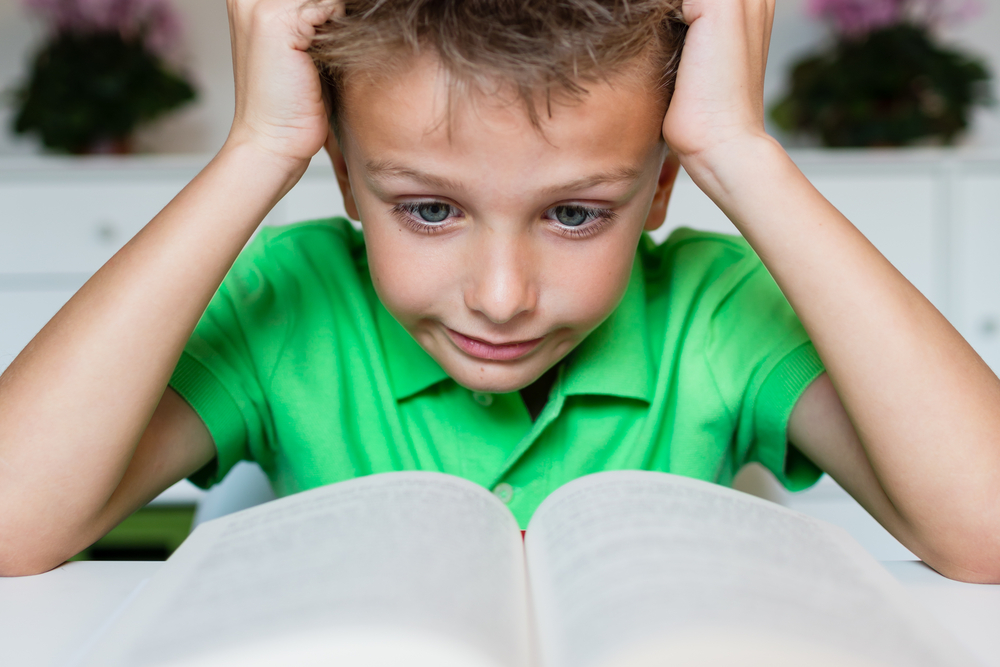Possible Signs Of Learning Disability In Your Child

Research from the National Institute of Neurological Disorders and Stroke reveals that between 8 and 10 percent of American kids under age 18 has some kind of learning disability, meaning nearly one in ten kids. As a parent, what are some of the possible signs that your child might be among this group?
At Learning Technics, our physio-neuro therapy programs for learning disabilities have helped thousands of kids and their families identify, accept and successfully manage their conditions. We're here to provide caring support every step of the way in your journey, including with the all-important area of properly identifying a learning disability in your child. Here are some of the common initial signs you may notice here, plus how you should proceed if you've noticed several of these and believe your child may have a learning disability.
Trouble With Attention Span
One of the most well-known and common signs of learning disabilities is trouble focusing and remaining attentive in class. This can result in your child becoming easily distracted or prone to daydreaming, with disorganization being a major component of the issue as well.
As some of our readers have likely already guessed, these sorts of symptoms are sometimes indicative of ADHD, or attention deficit hyperactivity disorder. While a learning disability can sometimes cause ADHD symptoms, the two are in no way one and the same. In fact, they often co-exist with one another, so as you monitor your child's attentiveness and focus level, be sure to also examine whether any of these characteristics could fit into either category.
Difficulty Reading or Writing
In other cases, learning disabilities can present themselves more plainly in your child's reading and writing abilities. Some parents notice that their child has trouble sounding out words or putting together sentences, with this problem often persisting even during grade school years.
If you've noticed any of these behaviors in your child, the first step is to consider whether this might be a case of dyslexia, or a reading disorder. If so, we recommend seeking out professional help to find the best treatment for dyslexia as soon as possible; your child will benefit from receiving support and guidance sooner rather than later.
Memory Issues
To be clear, it's entirely normal for children to sometimes be a bit forgetful. However, if you find that your child consistently struggles to remember specific facts, dates or memorize new information, it's worth looking into whether this might be the result of a learning disability. It's possible that this gap in your child's memory has become a consistent problem that needs to be addressed.
Issues Following Directions
Have you begun to notice that your child seems to mean well when given directions for various tasks, but consistently struggles to follow through on them? It's possible that your child has a learning disability that makes it difficult for him or her to connect what they've heard with what they should be doing.
If you think this might be the case with your child, try having him or her sit down and write out the steps in a task before actually carrying it out. If your child tends to leave out steps or words, this may be indicative of a learning disability that needs supplemental assistance.
Time-Related Conceptual Struggles
For other children, you may begin to see issues with understanding or tracking time. Your child may have trouble understanding the difference between weeks, months and years, for example, or have a hard time grasping what will happen in the future.
Again, there are some occasions where this is just due to simple absentmindedness or disorganization, but it may also be a sign that your child has a learning disability. If you're concerned about any of these issues or think they reflect a bigger problem, we recommend talking to your child's teacher and doing some research on common signs of learning disabilities in kids.
Frequent Physical Miscues
Some people don't realize it, but there are also physical symptoms that can accompany learning disabilities. For example, children who have a hard time focusing might fidget more than most other kids their age or tend to move around in their seats frequently. Other physical indicators of learning disabilities can include stuttering or mispronouncing certain words and having trouble with sequences such as starting the car before getting in, for example.
In other cases, these physical issues may manifest in seeming clumsiness or coordination issues. Children with learning disabilities may fall more often or suffer from frequent bumps and bruises, with this not necessarily being their fault.
How to Proceed
A few general tips on how to proceed if you've noticed some of these signs in your child:
Signs aren't a sure thing: Firstly, it's important to note that none of these signs can conclusively indicate whether your child has a learning disability. It's possible for kids to do poorly in school for many different reasons, and you should always seek other opinions before making any major decisions about your child's future.
Have an open mind: Secondly, it's crucial to have an open mind when it comes to seeking out a diagnosis. The symptoms of learning disabilities can be many and varied, and they're not always easy to spot.
Seek out professional assistance: Finally, we recommend seeking out professional assistance if you do think your child might have a learning disability. Whether that means talking to their teacher for a second opinion or arranging for your child to be evaluated by a specialist, it's important to get the help and support they need.
For more on the possible signs that your child is dealing with a learning disability, or to learn about any of our quality treatment programs for these and related conditions, speak to our team at Learning Technics today.